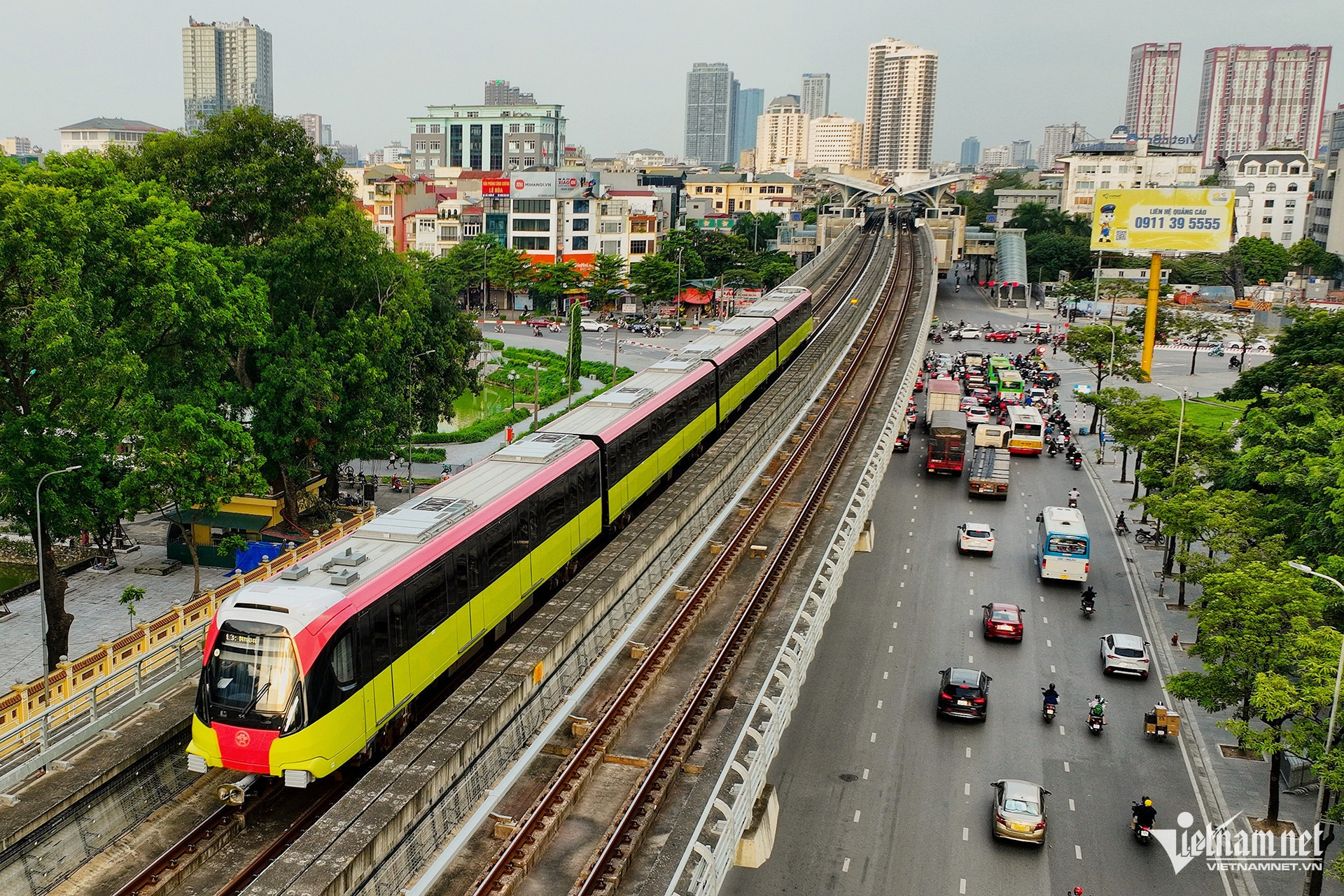
Hanoi is focusing its resources on the construction of two metro lines: Nam Thang Long - Tran Hung Dao and Hanoi Station - Hoang Mai, with a total investment of over VND 76 trillion.
Duong Duc Tuan, Deputy Chairman of the Hanoi People’s Committee, recently reported on the city’s urban railway (metro) system planning.
According to the transportation plan for the capital up to 2035, Hanoi’s metro system will consist of 10 lines with a total length of approximately 410 kilometers.
Recently, Hanoi has adjusted its master plan with a vision extending to 2065, adding five more metro lines with a total length of 200 kilometers. This brings the total to 15 metro lines spanning 610 kilometers.
The leadership of the Hanoi People’s Committee emphasized that the metro system is extremely important for the capital, similar to its significance in Ho Chi Minh City. Metro serves as the backbone of urban transportation infrastructure, especially in a major city like Hanoi.
Despite facing numerous difficulties and challenges during construction, Hanoi has successfully launched the Cat Linh - Ha Dong metro line and the elevated section of the Nhon - Hanoi Station metro line for commercial operation. "This is a significant milestone for Hanoi, and it has been warmly received and highly appreciated by the public," shared Tuan.
Deputy Chairman Tuan noted that the city has been proactively coordinating with the Ministry of Transport and relevant agencies to implement the conclusions of the Politburo. According to these plans, Hanoi aims to complete the construction of more than 10 metro lines before 2035.
The timeframe to complete these metro lines is just over 10 years. "If the new metro lines are constructed at the same pace as the old ones, it will pose a huge challenge in terms of resources, funding, and implementation mechanisms," he added.
Regarding specific goals, Tuan stated that Hanoi aims to complete 10 metro lines with a total length of 410 kilometers by 2035. Between 2024 and 2030, 96.8 kilometers of metro lines will be constructed, with a total investment of USD 14.6 billion. From 2031 to 2035, 301 kilometers of metro lines will be built, requiring an estimated USD 22.5 billion.
The total capital needed to develop Hanoi's metro system by 2035 is around USD 37.1 billion. Through a review, it has been determined that over the next 10 years, Hanoi can mobilize more than USD 28 billion for metro system investments. By 2035, Hanoi will need nearly USD 9 billion in support from the central government.
Tuan also mentioned that Hanoi is concentrating its resources on the construction of Metro Line 2, the Nam Thang Long - Tran Hung Dao segment, and Metro Line 3, the Hanoi Station - Hoang Mai segment.
Hanoi plans to commence construction on Metro Line 2 in 2025. For Metro Line 3, the city hopes relevant agencies will approve the proposal to use ODA (Official Development Assistance) funds to proceed with the next steps.
According to the plan, the Nam Thang Long - Tran Hung Dao metro line will have a total length of 11.5 kilometers, including 8.9 kilometers underground and 2.6 kilometers elevated, with 10 train sets. The total investment for this project is approximately VND 35,588 billion, and Hanoi aims to complete it by 2029.
The Hanoi Station - Hoang Mai metro line will have a total length of 8.7 kilometers, fully underground along the Tran Hung Dao - Tran Thanh Tong - Kim Nguu - Nguyen Tam Trinh corridor, with a total investment of approximately VND 40,500 billion.
Quang Phong